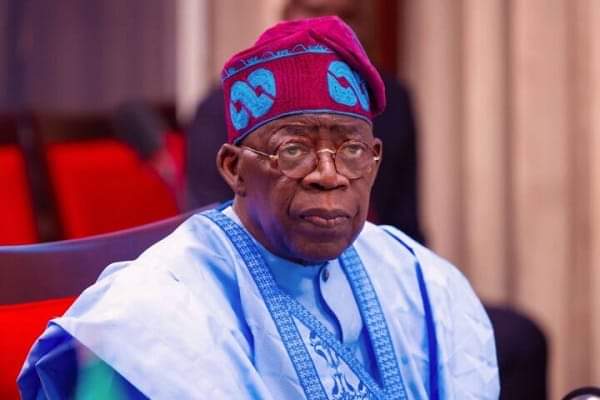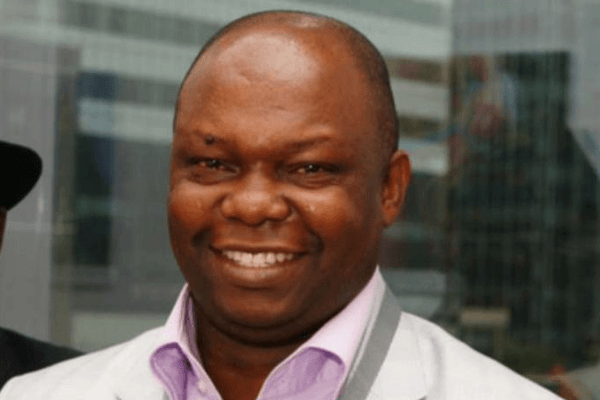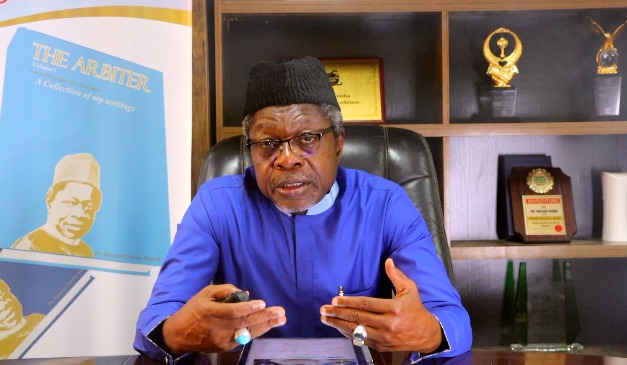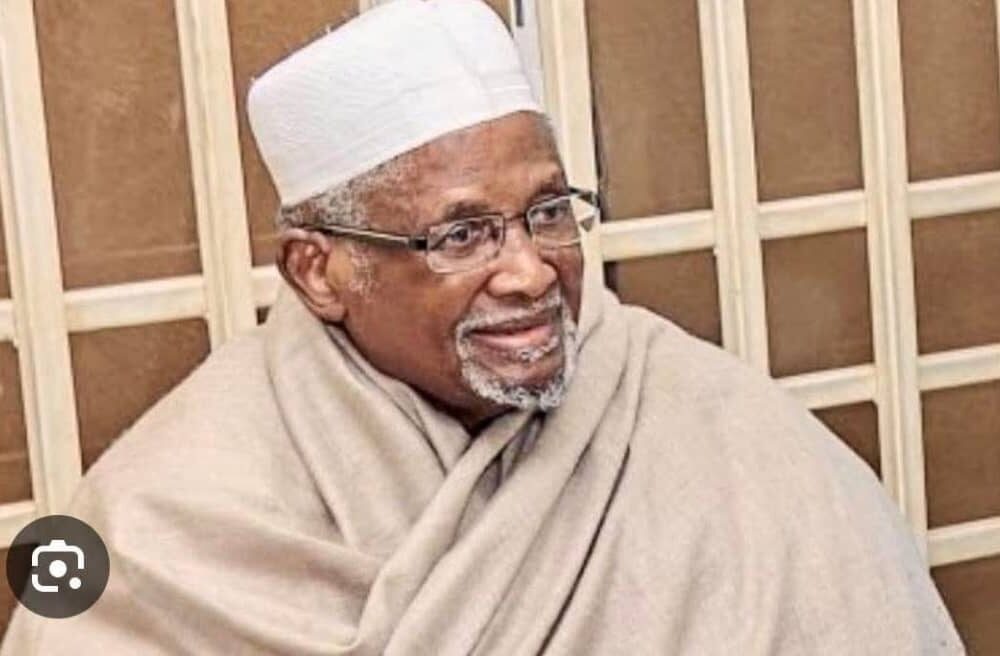President Olusegun Obasanjo’s re-election bid was the most dramatic in contemporary Nigeria’s electoral history. The charade of begging leaders to run for office started with him, unashamedly.
It was at his Ota farm, Ogun State, and the open space was filled to capacity, with marquee spread across the sitting areas. Everyone was there for just one thing: to beg baba to seek re-election.
After listening to different speakers, who had begged him profusely to run as if Nigeria was suffering a dearth of leadership, Obasanjo mounted the stage and allayed their fears.
“As a military person,” he said, “when you’re in the war front and it is tough, your options are two. You either move forward or retreat. And now, I have decided to move forward.”
With that coded message, it was clear to the “political jobbers” present that it was a yes and the thunderous applause that followed typified not just the nation’s hopeless politics, but exposed the hypocrisy of the ruling elite.
But that’s not the nucleus of this intervention. Before Obasanjo mounted the stage, the late Pa Emmanuel Alayande, a foremost Yoruba leader of the core Afenifere family, had spoken earlier with a view to laying the template for what would later follow.
Baba was very adept at storytelling. One of the anecdotes he regaled the audience with was how the name, Afenifere, came about. According to him, it was during a campaign in Ibadan in the Second Republic.
He explained that the Action Group, their home-grown political party, had in its campaign promises, listed too many beautiful promises that seemed impossible before the people.
“Then, the people asked: who are these ones with all these lofty ideas? And we replied them, ‘you can call us, Afenifere’. We are the ones who wish others well,” he recalled.
One truth that must not be lost on the people about governance in Nigeria is that the centre, despite the myth around it, does not deserve the kind of attention it gets in terms of governance.
The point here is that if the people truly want to feel the impact of governance, they have to focus on the states and, by extension, the local governments, which are closest to them.
A majority of the governors in today’s Nigeria are far from being responsible and, as such, are not qualified to earn the commendation badge of Afenifere. They do not wish the people well.
Not only are they happy that the federal government is taking the heat of their poor complementary governance, they are even more elated that the people could not tell that they are the real culprits of the swirling misgovernance.
What are the facts? The federal government had reportedly increased their allocations since last year. They have also received material assistance from the central government to help cushion the effect of the current hardship.
The Senate President, Godswill Akpabio, recently said the federal government, through FIRS, had remitted an extra N30 billion to each state to address the soaring cost of living in their respective states. So where did all the monies go?
Isn’t it understandable why none of these is translating into any good for the people at the state level? The governors are supposed to be the real Afenifere of Nigeria’s governance structure, yet they remain the devil that is in the detail of the nation’s sprawling catastrophe through primitive stealing of the collective patrimony.
Thus, while the Nigerian people must continue to hold the federal government accountable for not delivering leadership and seemingly incapable of coordinating anything, it’s about time the real anger was directed at those states that are not living up to the billing.
They cannot continue to hide under the illusion that the federal government had lost its groove while they steal the states mindlessly and leave the people in the lurch. As leaders, they have not only forfeited the right to make excuses, but a lot more is also expected from them.
This is why any constitution amendment that does not cut down the attraction to the presidency at this time is a mere waste of time and resources. Let more powers be devolved to the states and let the battle for governorship become more fierce, with emphasis on quality choices.
In all, the news from Lagos State might be a positive defuser of the situation in the state. Governor Babajide Sanwo-Olu is set to lead an encouraging charge. He has just modulated the work schedule of the civil servants by approving three working days weekly for them. He has also given a 25% reduction on BRT fares to relieve the people of financial burden.
Just like he did during the Covid-19 period, he is said to be considering a weekly media briefing to update the state on efforts being made to reach as many households as possible.
That’s a good place to start, but something more concrete, structural, and abiding must give, ultimately.





